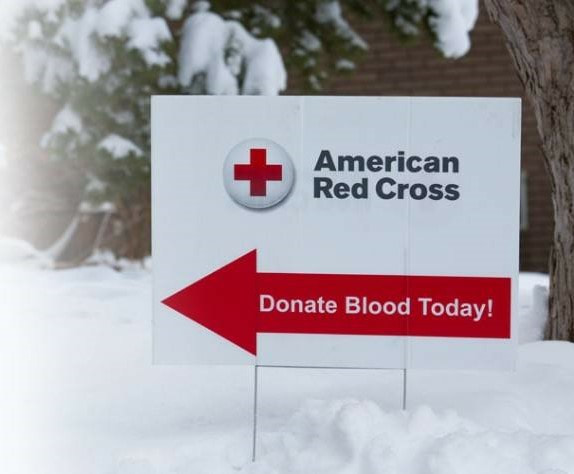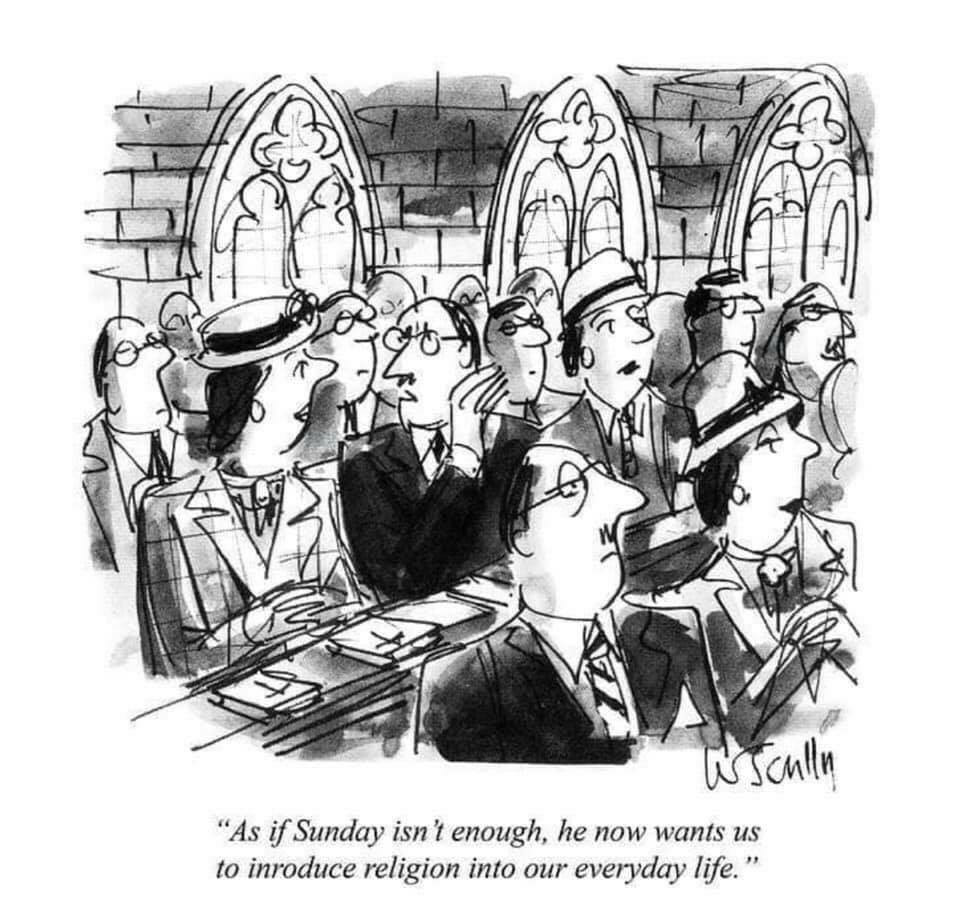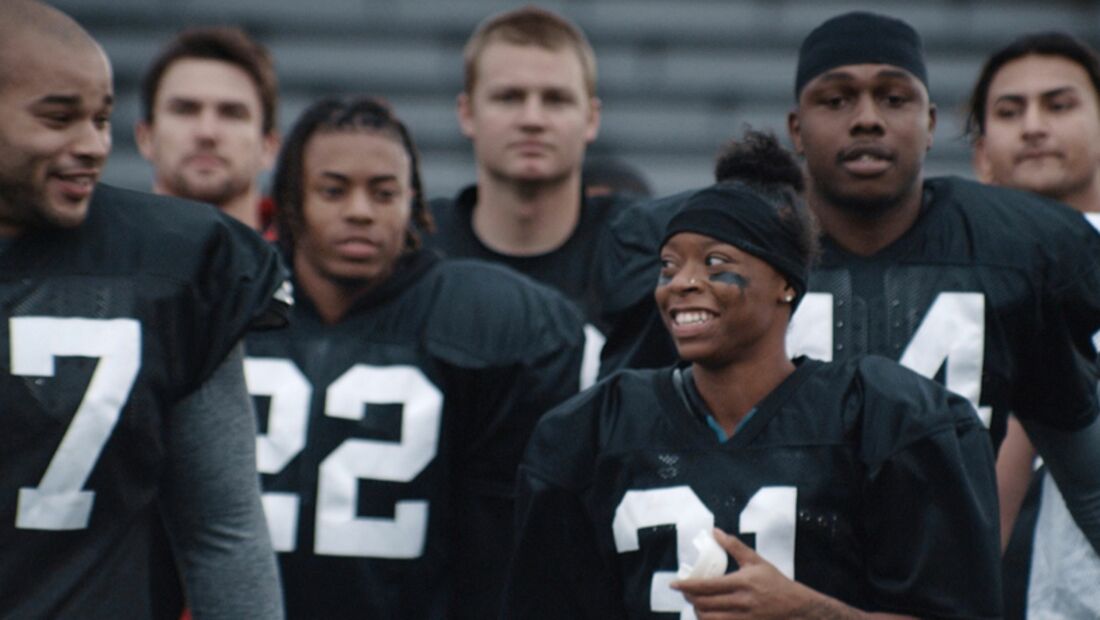|
Fourth Sunday After Epiphany “May the words of my mouth and the meditation of our hearts be acceptable to you, O Lord, my rock and my redeemer.” (Ps 19:14) I tend to donate blood on a regular basis, and the Red Cross doesn’t let you forget when you’re eligible to donate again. They call constantly. So what happens is I get into a repeating loop of donating at the same location and often with the same Red Cross staff. I’ve come to know the Blood Mobile driver and several of the phlebotomists, the ones who actually draw my blood. This past Tuesday was one such visit to the Blood Mobile. I don’t know if it was the threat of snow or the cold, but it was kind of slow that day. I was talking with the one who was in charge of my donation when another one of the phlebotomists who was just sitting on the empty donor-couch across the aisle chimed in too. She mentioned that she recognized me even before I signed in. I thought that was nice. I took it as a compliment. I thought maybe she remembered me as a pastor or for some funny story or something like that. But it was nothing of the sort. She remembered me and all of her other regular donors – by our veins. “That donor has good veins, that one not so much. This donor is a hard stick. That other one an easy stick.” What mattered to the phlebotomist was what was important to the phlebotomist – veins. I’m sort of friendly with my gastroenterologist too. I’ll have to ask him if the same applies when I come around for my colonoscopy. So along that same line of reasoning, what is it that stands out as the most recognizable identifier of a Christian? What’s most important to us? I’m sure going to church would be one of the quickest and most repeated answers, especially among people who are in church and who hear that question in a sermon. It’s not hard to identify some Christians on a Sunday morning, but what are the identifiers during the rest of the week? You probably remember Rev. Robert Livingston. He has been a supply minister here in the past. He posted a cartoon on FaceBook the other day that shows an upset gentleman whispering to his wife in church and saying, “As if Sunday isn’t enough, now he wants us to introduce religion into our everyday life.” How do we do that? What does it look like? What are its identifiers? I caught a quick look of an interview with Toni Harris, a defensive back for the East Los Angeles College Huskies. Toni wants to be the first female NFL player. If you’re going to watch the Super Bowl this evening, you’ll see Toni. She’s the star in a car commercial. “They said she was too small, too slow, too weak.” The commercial continues with the voiceover saying, “People have made a lot of assumptions about Toni.” Then the camera zooms in on her face and she looks right at us and says, “But I’ve never been a big fan of assumptions.” I think we also need to be wary of assumptions when it comes to defining the identifiers of a Christian because they also can be far too limiting. Jesus knew this and was quite direct when He said, “‘Not everyone who says to me, “Lord, Lord,” will enter the kingdom of heaven, but only the one who does the will of my Father in heaven.’” (Matt. 7:21) Paul repeats this message when he writes to the early church in Rome and says that a believer is not defined by the superficial. Instead, real faith “is a matter of the heart.” (2:29) It has to be sincere. So we’re back to the question about what are the identifiers of a Christian? I think among us that question is going to remain open to debate, but I think we should consider Paul’s words in today’s first reading that Bill shared with us. For Paul and for that first generation of Christians, love was the essential identifier of faith. This goes far beyond the assumptions of love. The Greeks had three words that English translates with the one word love. There is a physical love and there is also a brotherly love, but the word Paul uses today is agape, a selfless, unconditional love. Faith matters, hope matters, but “the greatest of these is love,” agape, says Paul. The physical and the brotherly love are normal human emotions. Jesus once said, “‘If you love those who love you,’” basically, big deal. Anyone can do that. (Matt. 5:46) Christian love, however, comes from the presence and the power of God within us. This kind of love is more than human. It’s transformative. It changes people. It becomes an identifier. There’s an on-going article on NPR about anger. The link will be posted with the sermon later today. Scientists argue that anger is found even down to the level of fruit flies. It’s so common it must be natural. It’s something living things are born with. When we talk about this in human beings, some people say it’s original sin. I wouldn’t. I would call it human nature. I wouldn’t, therefore, call who we are by nature sinful because I don’t think God made a sinful creation. But we are called to be more than our human nature. That’s when the natural instinct of anger is subdued by Christian love, and all of a sudden we look different. We can be identified. We stand outside the expected. In that NPR article, the scientists say, “One way the human brain may differ from an animal's is in the circuits used to control emotions, including anger. … Our ability to use these circuits probably depends more on nurture than nature.” For our purposes here, nurture is where our faith jumps into the story and helps us become better than we could be without it. Anger seems to be hardwired into living things from fruit flies to humans. It’s a natural response. What identifies a Christian though is that love is stronger. That’s unnatural. That’s the difference faith makes. https://www.npr.org/sections/health-shots/2019/01/29/688620302/from-fruit-fly-to-stink-eye-searching-for-angers-animal-roots The Red Cross phlebotomist looked at me as a phlebotomist would and saw me as my veins. As Christians we need to look at ourselves and others and see love.
Let’s hope that people can tell we are Christians not only by our cars parked outside the church, but by the fact that they can see love in how we live even in our everyday lives. Such a love needs to be nurtured. It needs to be fed. And this is why we will now gather together at the Lord’s Table to share in Jesus’ sacrament of perfect love. So let us prepare ourselves for Communion. In Jesus’ name we pray. Amen.
0 Comments
Leave a Reply. |
NewsFaith, love and chitchat. Categories
All
Archives
June 2024
Follow
|
|
SERVICE TIMES
Sunday 9:30-10:30am Children Sunday School 9:30-10:30am Nursery care available during worship DONATE Make a single or recurring contribution by clicking here |
FOLLOW
|





 RSS Feed
RSS Feed
